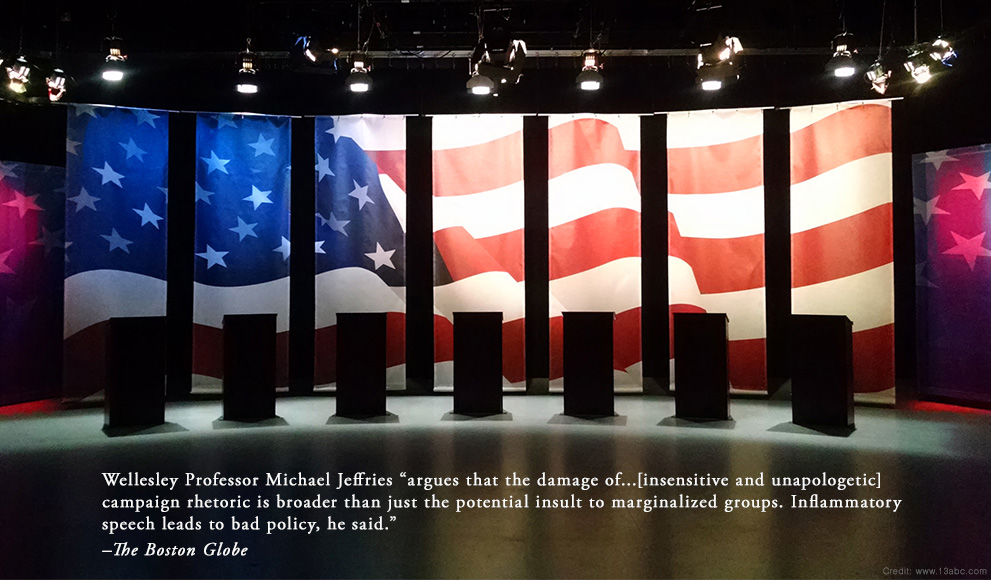Boston Globe, New York Times and Others Call on Professor Michael Jeffries for Insight on Politics, Race, and Culture

Michael Jeffries, associate professor of American Studies, has recently been called upon by several major media outlets for commentary to advance much-needed dialogue on issues like race, gender and politics in America.
The Boston Globe asked Jeffries about political correctness, and, specifically, why some recent presidential candidates and their supporters are "[denouncing] what they see as hypersensitivity about race and gender, especially by the political left, 'elites,' and the media." While agreeing that political correctness can potentially hamper debate, Jeffries said that arguments opposing "p.c." rhetoric are often grounded in a resistance to societal change.
"People who apply the charge of political correctness [as a negative] are those who benefit from patriarchy...," Jeffries explained. Insensitive and unapologetic rhetoric from politicians isn’t simply potentially offensive to minorities; it can actually lead to bad policy, he told the Globe.
Jeffries' comments also appeared in the New York Times where he talked about the problematic use of the word "thug" by two white bloggers for their website and a cookbook. Amid a debate over whether the two were appropriating blackness to sell a product, Jeffries offered context on the controversy, explaining that "two young white folks playing around with black styles and black vernacular…can stop that performance whenever they wish, but for someone who is labeled a thug by the state or by elected officials because of his or her racial or ethnic background, the power to stop that performance doesn’t exist." Jeffries is the author of Thug Life: Race, Gender and the Meaning of Hip-Hop.
The WGBH program Under the Radar, which is hosted by Callie Crossley '73, featured Jeffries on its November 1st show where he spoke about issues related to women in music, film, and gaming. During one segment, Jeffries critiqued a lengthy New York Times profile of singer Nicki Minaj that had stirred controversy over its presentation of the rap icon, including what some said was the writer's dismissive fixation with the rap artist's fashion and body.
While Jeffries noted that it was "historically significant" that the Times story went into "that much depth" for a profile of a black woman artist, he went on to call attention to the gaps in the writer's background knowledge of hip hop and black women's bodies. "[T]here's a historical trajectory here that [the Times author] misses when she opens up these conversations of ownership, and in particular black women's' ownership of their musical performance and her bodily performance in public," he said. Without this view, he argued, the article did not offer a complete picture of Minaj's impact on rap and her unique approach to performance and self-representation.
Jeffries' research emphasis is on race, gender, politics, identity, and popular culture. His most recent book is Paint the White House Black: Barack Obama and the Meaning of Race in America.
